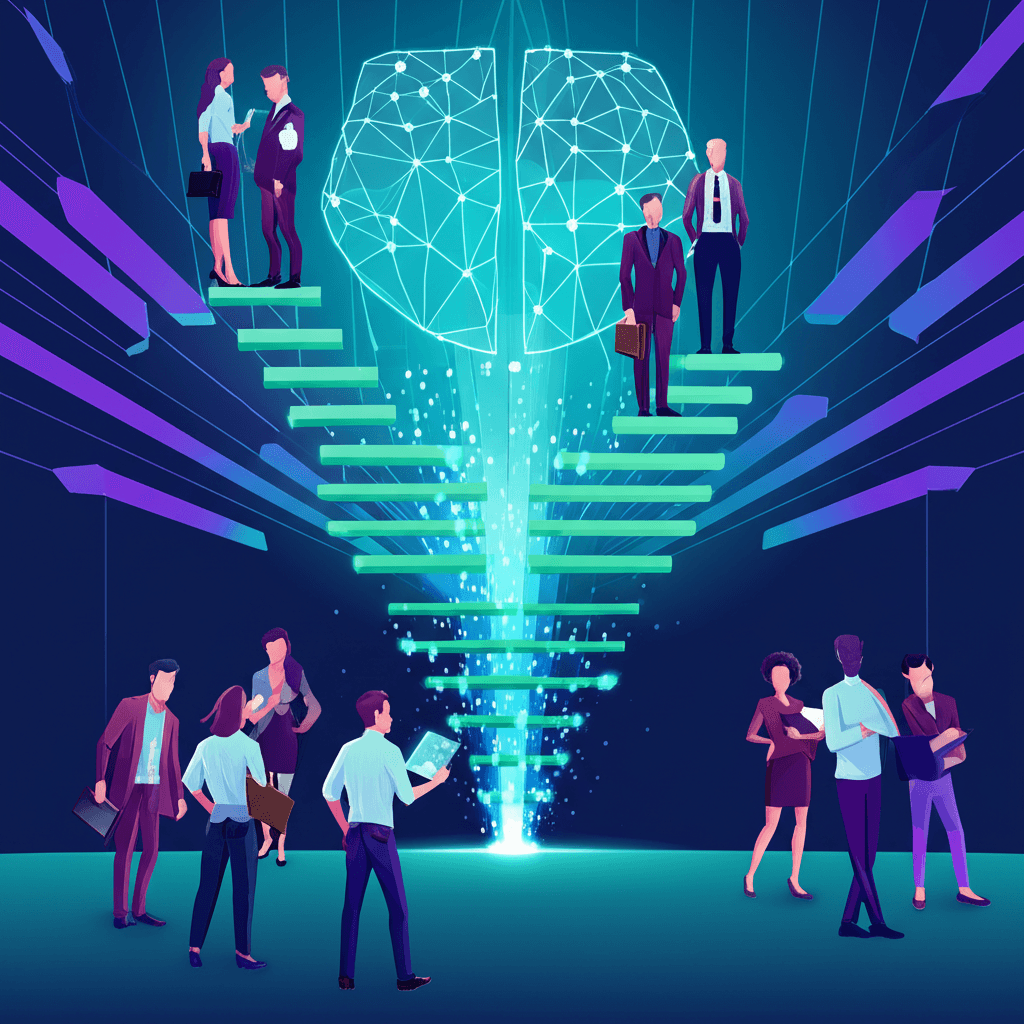Generative AI slashes young, entry-level job opportunities, Stanford warns.
Entry-level jobs for recent graduates plummet as generative AI automates tasks, fundamentally reshaping the career ladder's first rung.
August 26, 2025

A sweeping study from Stanford University reveals that the proliferation of generative artificial intelligence tools like ChatGPT is significantly diminishing employment opportunities for young, entry-level workers in fields highly exposed to the technology. An analysis of anonymized payroll data from millions of American workers, provided by the payroll processing firm ADP, shows a stark divergence in job market outcomes since late 2022. While employment for experienced professionals and those in less AI-susceptible roles has remained stable or even grown, young people in exposed occupations are facing a sharp decline in hiring, signaling a fundamental shift in the entry-level job landscape. The findings suggest that the initial, large-scale impacts of the AI revolution are not being felt evenly across the workforce, with the least experienced bearing the most immediate consequences.
The core finding of the Stanford research, titled "Canaries in the Coal Mine? Six Facts about the Recent Employment Effects of Artificial Intelligence," is a measurable and significant drop in employment for the youngest segment of the workforce.[1] The study, authored by Erik Brynjolfsson, Bharat Chandar, and Ruyu Chen, found a 13 percent relative decline in employment for workers aged 22 to 25 in the occupations most exposed to AI.[1] This trend is particularly pronounced in specific fields; for instance, employment for software developers in that age bracket fell by nearly 20 percent from its peak in late 2022.[2] In stark contrast, the same period saw employment for older workers in those same fields hold steady or, in some cases, increase. The data, which runs through July 2025, controlled for company-specific shocks, indicating that the trend is not merely a result of individual firms' downturns but a broader market adjustment linked to AI.[2][1]
The researchers posit a compelling theory for this generational divide, centering on the difference between "codified knowledge" and "tacit knowledge." Generative AI excels at tasks based on codified, or "book-learned," information—the formal skills and facts typically acquired through education and training.[1] This type of knowledge is the primary asset of recent graduates and entry-level employees. Conversely, AI struggles to replicate tacit knowledge, which is the intuition, nuanced judgment, and idiosyncratic problem-solving ability gained through years of hands-on experience.[1] This makes experienced workers less susceptible to direct replacement and, in some cases, more valuable as their expertise can be augmented by AI tools. The study notes that the job losses for young workers are concentrated in roles where AI applications directly automate and replace human tasks.[2][1] In fields where AI serves to assist or augment human capabilities, employment for young workers was found to be stable or even to have increased.[2] This distinction underscores a critical dynamic: AI is not simply eliminating jobs, but fundamentally restructuring them in a way that devalues formal training in isolation and places a higher premium on accumulated experience.
This trend is not isolated to the United States or the specific dataset used by the Stanford researchers. Corroborating data from other sources paints a similar picture of a contracting entry-level market. Research from the job search platform Adzuna, for example, found that vacancies for junior positions, graduate roles, and apprenticeships in the UK have fallen by nearly a third since the launch of ChatGPT.[3] Another report from career platform Handshake noted a significant increase in the number of applications per entry-level job opening, while the number of job listings for roles traditionally available to new graduates has declined.[4] This broader market context suggests that companies are actively rethinking the value and necessity of traditional entry-level roles, many of which are composed of tasks that can now be efficiently performed by generative AI. Firms may be opting to leverage AI for routine work, leading to increased efficiency and cost savings but reducing the number of available positions that have historically served as the first rung on the career ladder.[3]
The long-term implications of this shift are profound and raise critical questions for the AI industry, educational institutions, and the future workforce. If the primary entry points into highly skilled professions are narrowing, it could create a significant bottleneck for talent development, potentially leading to a shortage of experienced senior leaders in the decades to come.[5] This trend challenges the traditional model of career progression, where young workers learn the tacit skills of their trade by first performing the more routine, codified tasks. Without this initial exposure, the pathway to expertise becomes less clear. Consequently, there is a growing urgency for educational systems to adapt, potentially by integrating AI literacy and focusing on skills that complement AI, such as critical thinking, creativity, and collaboration.[6][7] For the AI industry itself, these findings present a complex challenge, highlighting the technology's potential to exacerbate inequality while also creating opportunities for productivity growth. The focus may need to shift from pure automation to creating tools that effectively augment human skills across all experience levels to ensure a sustainable and equitable future of work.